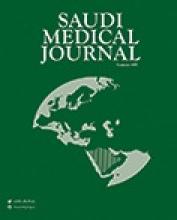14 August 2020 Statement - Scope (COVID-19 and non-COVID-19 patients affected by the pandemic)
The International Narcotics Control Board (INCB), the World Health Organization (WHO) and the United Nations Office on Drugs and Crime (UNODC) call on governments to ensure that the procurement and supply of controlled medicines in countries meet the needs of patients, both those who have COVID-19 and those who require internationally controlled medicines for other medical conditions.
There is a need to ensure access to controlled medicines such as sedatives and analgesics for intubation protocols for the treatment of patients with COVID-19. Non-COVID patients continue to require controlled medicines for the management of pain and palliative care, surgical care and anaesthesia, mental health and neurological conditions, and for the treatment of drug use disorders.
It is important to remember the needs of existing patients who require controlled medicines for the management of these health conditions. These patients faced barriers to accessing controlled medicines before the COVID-19 pandemic. The COVID-19 pandemic has further resulted in interruptions of the medicines supply chain, and it is critical that access to essential health services and medications not be forgotten or de-prioritised during this pandemic.
Need for equitable access
As the pandemic increasingly affects countries with under-resourced health infrastructure and services, it is an ethical imperative to ensure that all people in all countries of the world are able to access essential medicines. This includes those medicines that are under international control.
Governments should ensure that sufficient quantities of internationally controlled medicines, of assured quality, are available and affordable to people under medical care. Throughout the duration of the pandemic and beyond the acute phase of burden on the healthcare infrastructure, it is critical that governments work cooperatively to ensure that no country, no region, no district, no city and no patient is left behind. Competent national authorities, manufacturers, suppliers and distributors play a crucial role in ensuring that internationally controlled medicines urgently needed for medical treatment are available within and across national borders. The supply chain is the foundation of quality medical care because without the necessary supplies, including essential controlled medicines, patients will suffer.
Solutions to address barriers
Governments are reminded that in acute emergencies, it is possible under the International Drug Control Conventions to utilize simplified control procedures for the export, transportation and supply of medicinal products containing controlled substances, especially in those cases where the competent authorities in the importing countries may not be operating at full capacity. Competent national authorities may permit the export of medicines containing narcotic drugs and/or psychotropic substances to affected areas even in the absence of the corresponding import authorizations and/or estimates. Urgent deliveries do not need to be included in the estimates of the receiving countries affected by emergencies. When possible, competent national authorities are also encouraged to issue electronic import and export authorizations through the INCB International Import and Export Authorization System (I2ES), PEN Online and share related contingency measures in the forum therein.
Countries should ease COVID-19 related transport restrictions for controlled medicines and consider local production solutions when feasible, to meet the COVID-19 driven demand spikes.
To assist countries as they work to find solutions to the lack of access and availability of controlled medicines, the three organizations suggest the following technical assistance and support documents:
Countries are encouraged to refer to the Guide on Estimating Requirements for Substances under International
•
Control developed by the International Narcotics Control Board and the World Health Organization for use by Competent National Authorities.
•
Countries are encouraged to refer to WHO’s toolkit on the clinical care of severe acute respiratory infections, which includes guidance on the use of controlled medicines for the treatment of COVID-19 patients.
•
Countries are further advised to utilize WHO’s operational guidance for maintaining essential services during an outbreak to balance the demands of responding to the COVID-19 pandemic whilst simultaneously ensuring that essential health services and provision of medication for other ongoing medical conditions are maintained.
•
Countries are encouraged to refer to normative guidance such as the WHO List of Essential Medicines and guidelines for the pharmacological and radiotherapeutic management of cancer pain in adults and adolescents.
Countries are further advised to refer to and utilize the strategies presented in UNODC’s Technical Guidance: Increasing Access and Availability of Controlled Medicines developed in collaboration with experts, civil society partners and other international partners.
Under the UNODC-WHO-UICC Joint Global Program, countries are encouraged to reach out to UNODC and WHO for technical assistance and support at the national level that also involves civil society partners.
Conclusions
The work of doctors, nurses, and health care professionals in general, who provide treatment and care to people including the most vulnerable, needs to be supported and safe and effective medicines should be available, accessible and affordable at all times for people who need them.
INCB, WHO and UNODC are committed to continue to work together to address this critical issue and will expand joint efforts to engage with other partners and increase advocacy and technical assistance to countries for improving access to controlled medicines during the COVID-19 pandemic and mitigate barriers to ensure that both patients affected by COVID-19 or by other non-COVID-related conditions requiring medicines under international control have access to these medicines when they need them.
- Copyright: © Saudi Medical Journal
This is an open-access article distributed under the terms of the Creative Commons Attribution-Noncommercial-Share Alike 3.0 Unported, which permits unrestricted use, distribution, and reproduction in any medium, provided the original work is properly cited.






